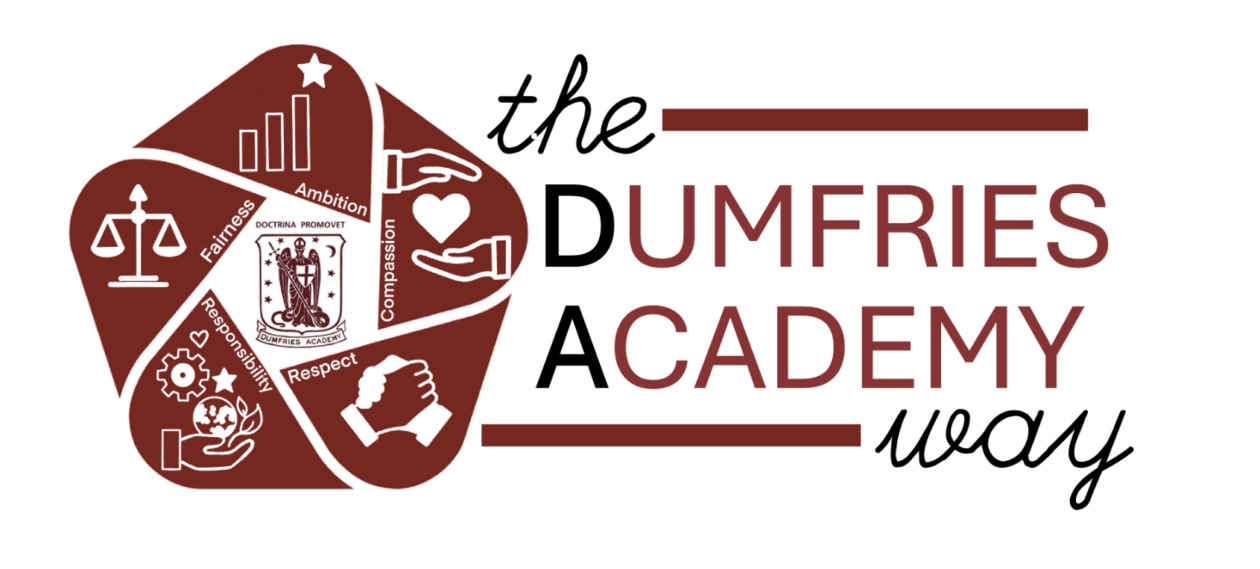Being competent in English is the key to success in many aspects of life and work. Skills in English language and communication are important in many school, college and university subjects and occupations, and a qualification in English is often required for entry to further and higher education. This subject aims to improve and extend your language and communication skills and broaden your experience of English literature in prose, poetry and drama. You may also study a media text.
National 4
This course allows pupils opportunities to develop and extend a wide range of skills; in particular the ability to: listen, talk, read and write; understand, analyse and evaluate texts, in the contexts of literature, language and media; create and produce texts; plan and research, integrating and applying language skills as appropriate to purpose, audience and context. These skills are transferable to everyday situations.
In this course, pupils will study units in:
- Analysis & Evaluation – responding to read and heard texts
- Creation & Production – producing writing and talks
- Added Value Unit – using language skills to investigate and report on a chosen topic
- Literacy – develop language skills in reading, writing, talking & listening in forms relevant to life, learning & work.
The units are taught in an integrated way throughout the course and internally assessed by the classroom teacher. All unit outcomes must be passed in order to gain the course award.
National 5
In this course, pupils understand, analyse and evaluate a range of written texts, fiction and non-fiction, and practise writing and talking skills in different contexts or genres. Much class time will be spent studying literature, including a compulsory Scottish set text. We hope to encourage enjoyment in reading and encourage pupils to think critically about a range of topics. Pupils are expected to write critically about the texts studied in the final exam.
There is a compulsory internally assessed talking assessment which candidates must pass to go forward to the final exam. A writing folio (30%) is submitted to the SQA and pupils sit two exams, one in Critical Reading (40%) and one in Reading for Understanding, Analysis and Evaluation (30%).
Higher
In this course, pupils understand, analyse and evaluate a range of written texts, fiction and non-fiction, and practise writing and talking skills in different contexts or genres. Much class time will be spent studying literature, including a compulsory Scottish set text. We hope to encourage enjoyment in reading and encourage pupils to think critically about a range of topics. At Higher level, this course also aims to develop skills in independent study. Pupils are expected to write critically about the texts studied in the final exam.
There is a compulsory internally assessed talking assessment which candidates must pass to go forward to the final exam. A writing folio (30%) is submitted to the SQA and pupils sit two exams, one in Critical Reading (40%) and one in Reading for Understanding, Analysis and Evaluation (30%).
Advanced Higher
This course is designed to build on the knowledge and skills that gained in Higher English and help pupils pursue particular interests in more specialised areas of study. The subject presents considerable academic and personal challenges and requires an independent approach. It provides a sound base for further study of English and a level of linguistic competence which is extremely valuable for a wide range of other studies and employment.
Pupils will develop the skill of critically responding to complex and sophisticated texts by applying knowledge of the various ways by which meaning is created, and by understanding critical concepts and approaches. A range of literature and genres will be explored: fiction and non-fiction, drama, poetry and prose. Class texts will be written about in the exam in May, and there is also an exam in analysing unseen texts.
As well as this, pupils also select materials for research into an aspect of literature to produce a dissertation on a topic of their own choice, from literature, language or media. This process demands a high degree of independence, initiative and responsibility, and is submitted to the SQA for marking.
Finally, pupils will extend and refine their writing skills by producing a range of different types of writing. Learners will develop a range of skills necessary for the deployment of language to create effect. This will culminate in the production of a portfolio of writing submitted to the SQA.
The course is assessed as follows: Literary study exam (20%); Textual analysis exam (20%); dissertation (30%); folio of writing (30%).

